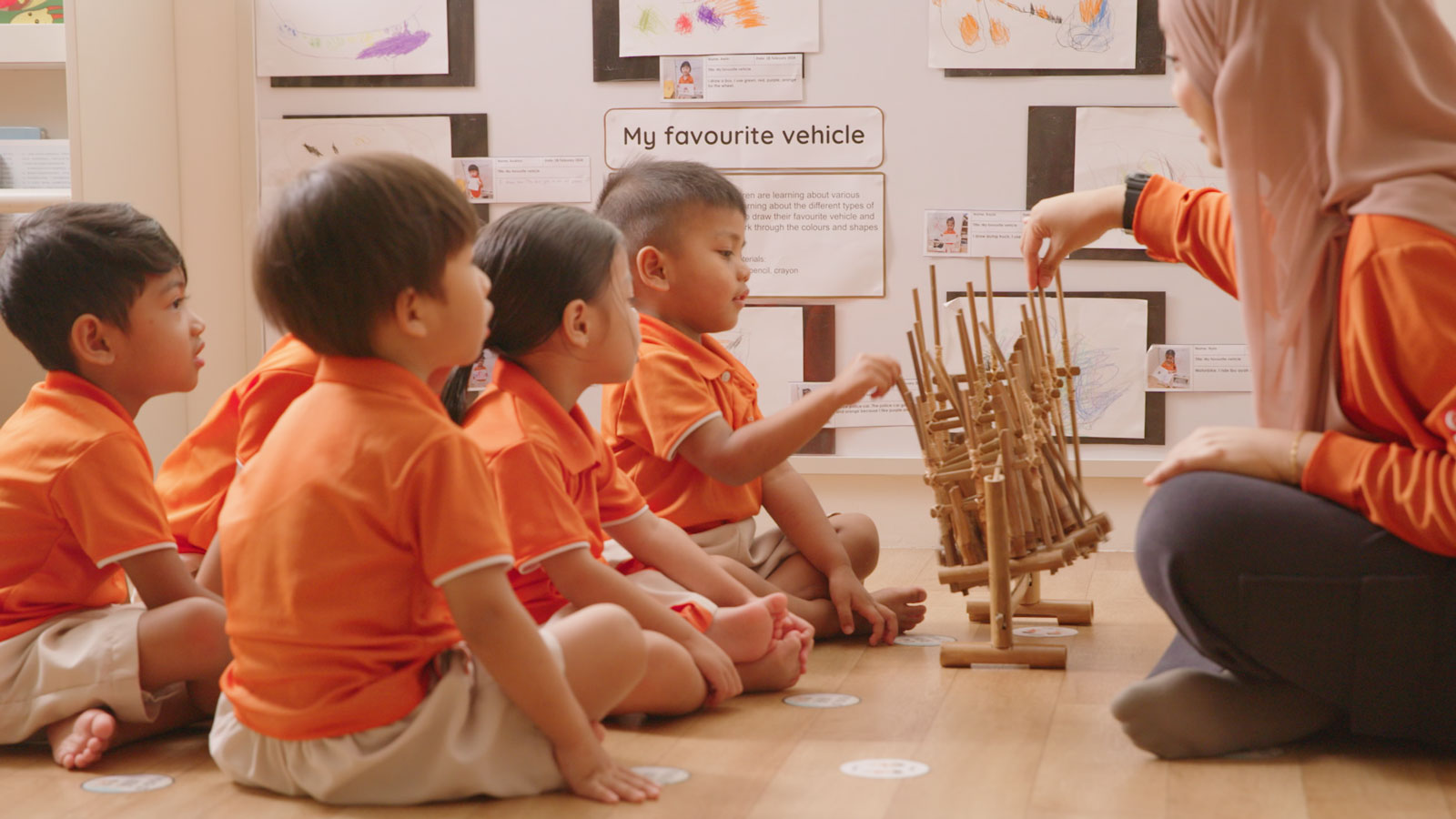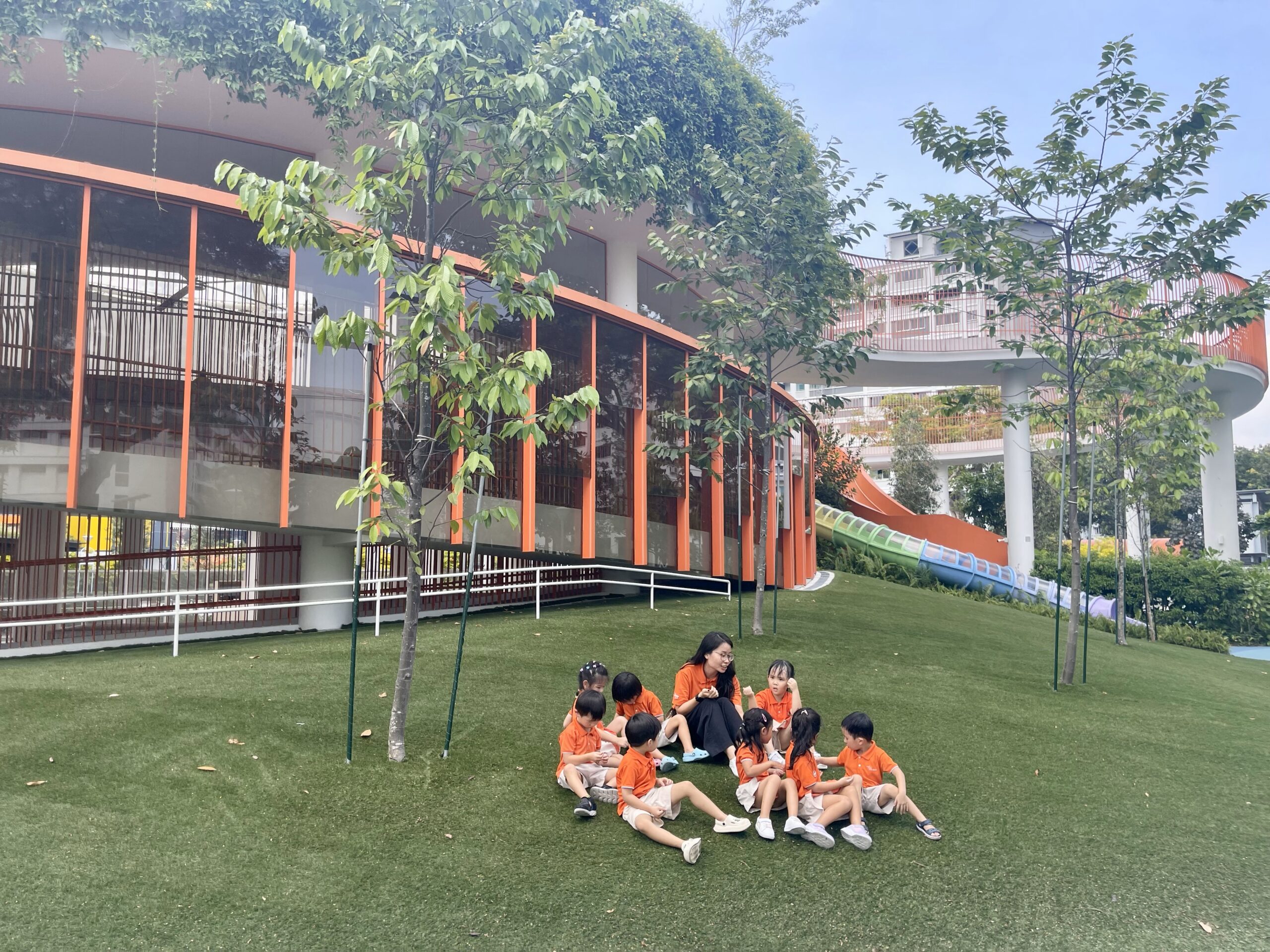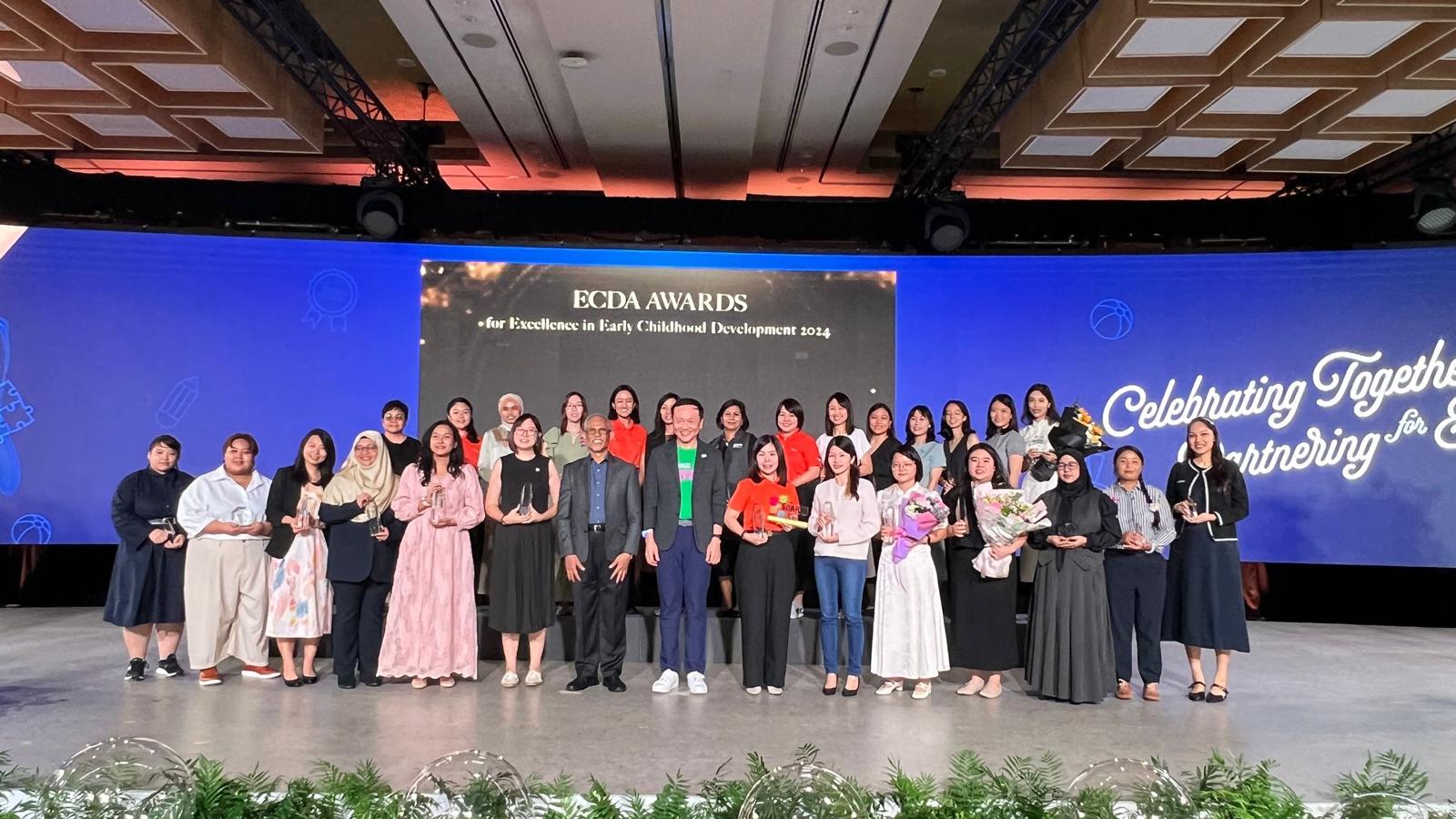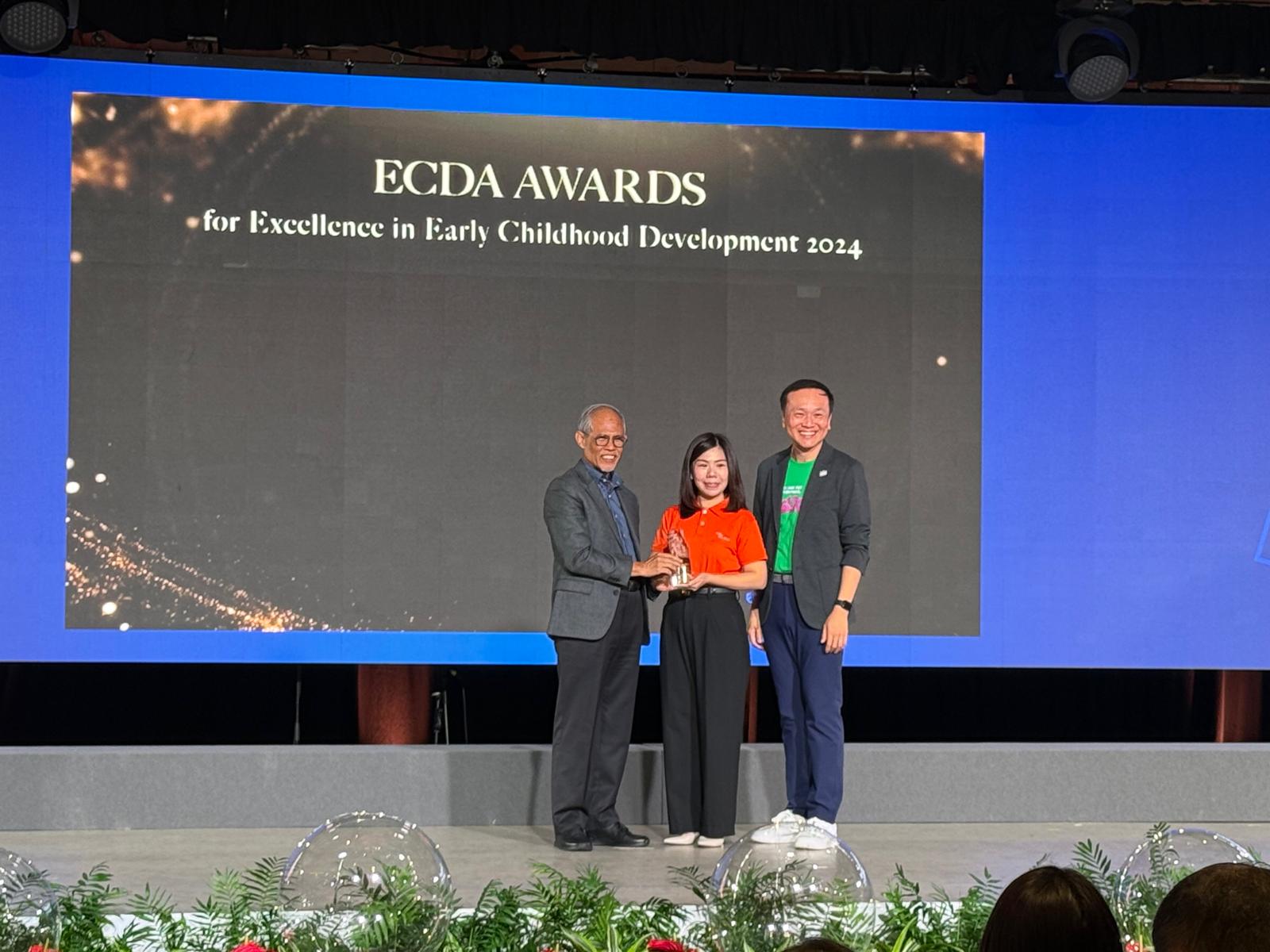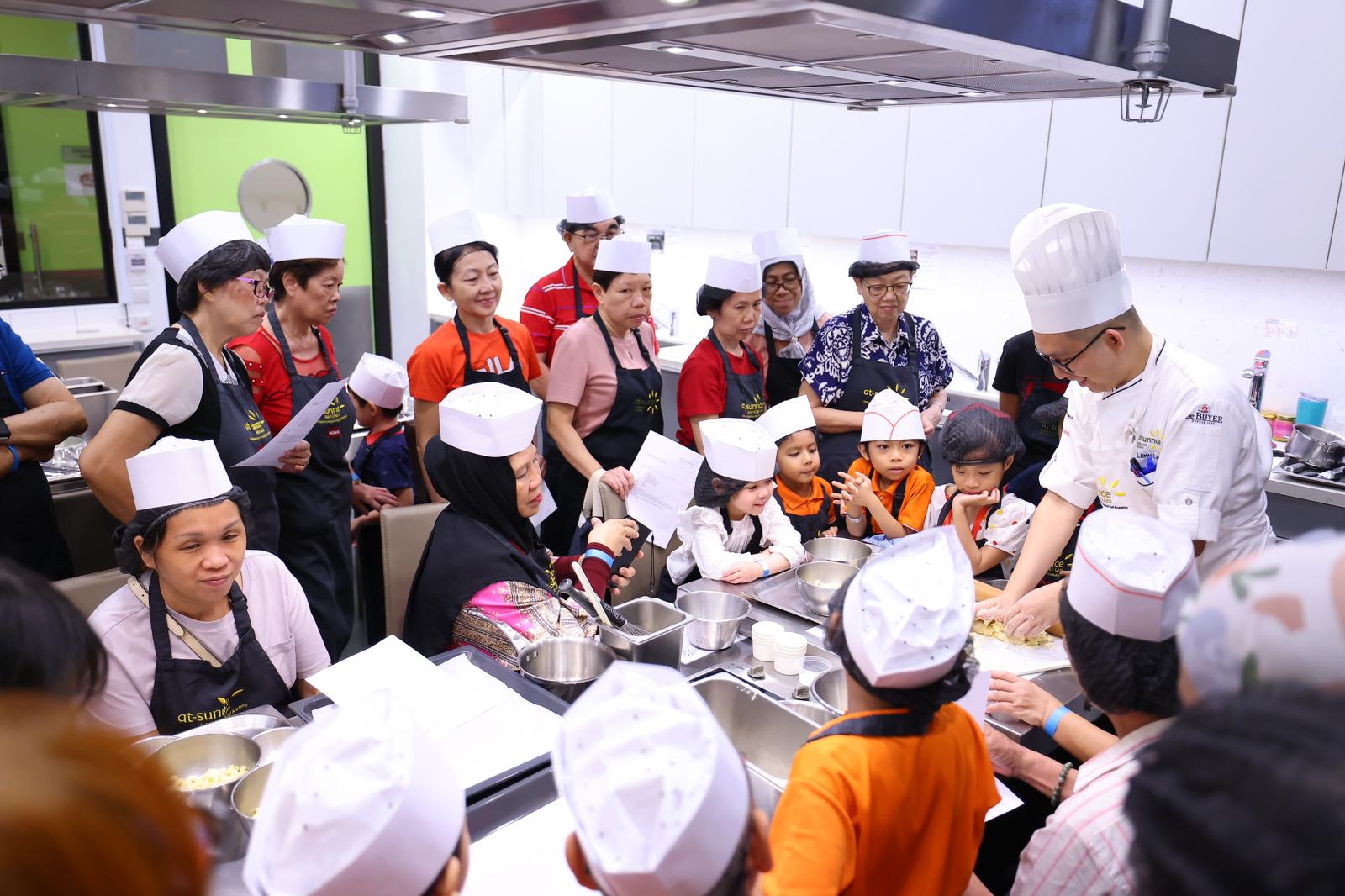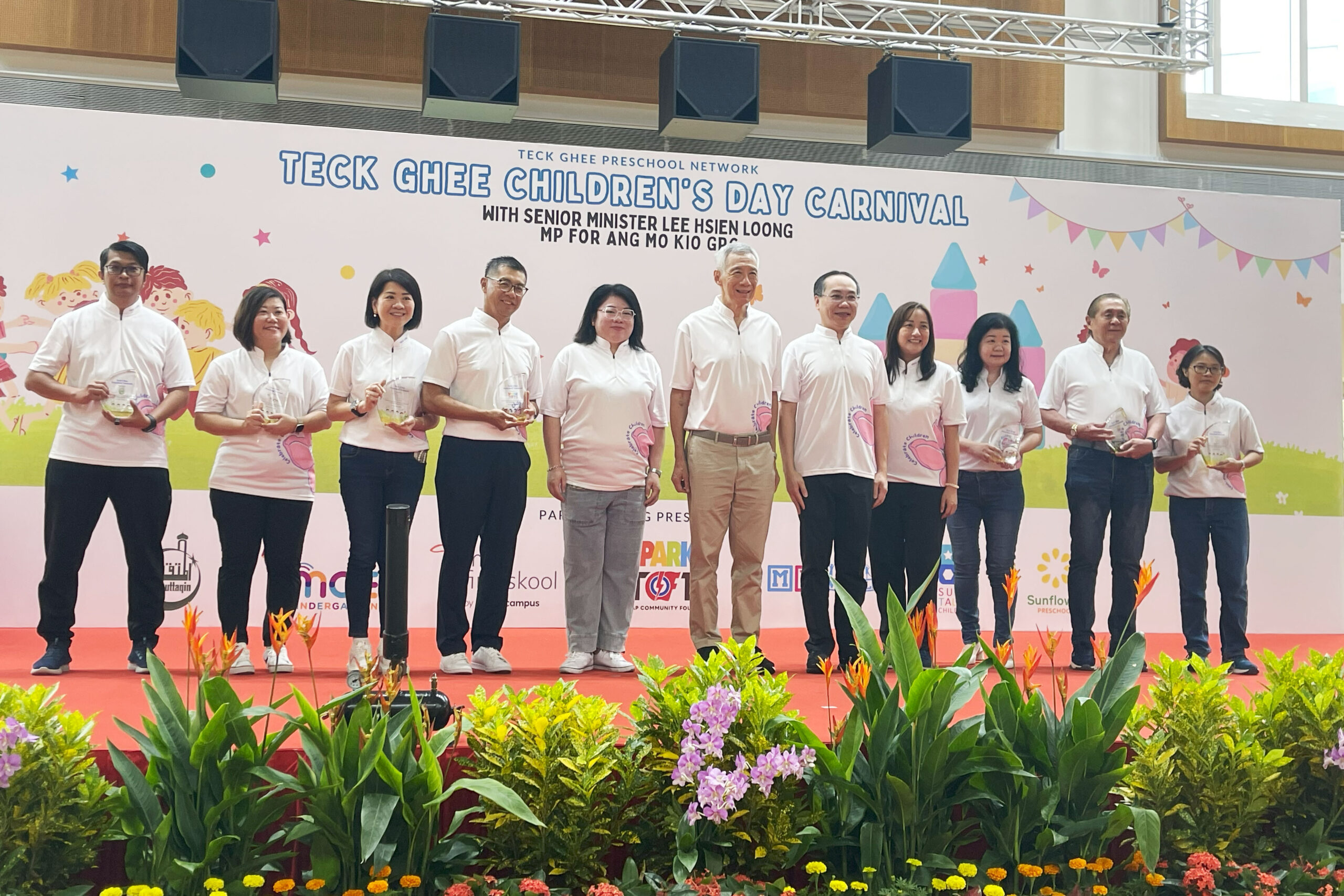![]()
![]()
NTUC First Campus spearheads first of its kind research study on mother tongue language acquisition in the early years to strengthen bilingual curriculum
PUBLISHED
04 October 2017
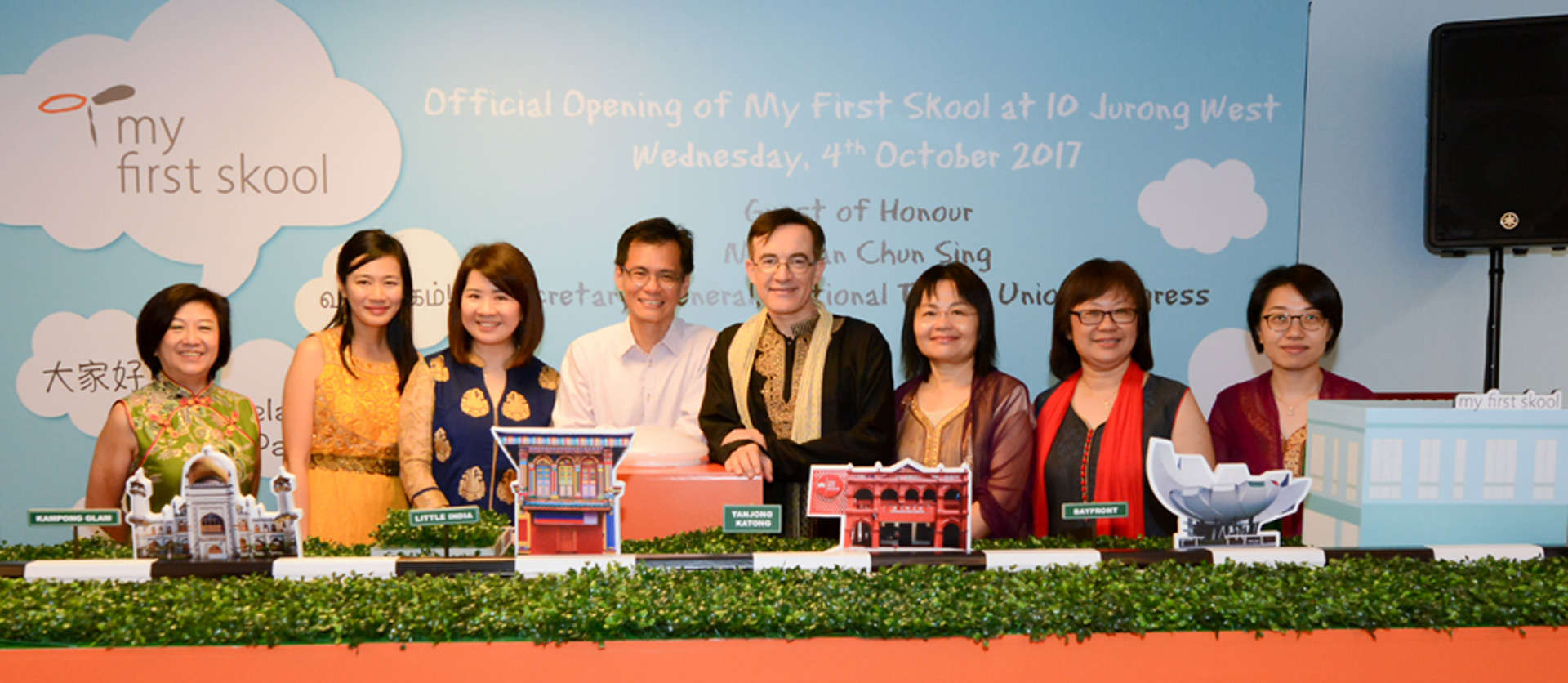
New My First Skool large childcare centre in Jurong West to develop niche status in bilingualism and cultural intelligenced
NTUC First Campus announced today that it is spearheading a multi-year research study on mother tongue language acquisition to be carried out at My First Skool at 10 Jurong West, the pre-school chain’s largest centre in the western part of Singapore. Findings will be used to strengthen its pre-schools’ bilingual curriculum and work with teachers as well as parents to help pre-schoolers gain bilingual competency. Officially opened by Secretary-General of the National Trades Union Congress (NTUC) Mr Chan Chun Sing, the centre is the one of the five large childcare centres built on undeveloped state land, and can take in 319 children from two months to six years old.
Explaining the importance of strengthening bilingual competency in pre-schoolers, Dr Connie Lum, Group Mother Tongue Languages Officer of NTUC First Campus said, “Research has shown that the early childhood years is a critical period for language development. Over the last two decades, there has been an increasing number of Singaporeans predominantly speaking English at home and not their mother tongue languages. NTUC First Campus believes that a well-designed mother tongue language programme in the early years will make a big difference in cultivating the love for the mother tongue language, and support the development of children’s sense of cultural identity from a very young age. Part of our strategy will involve partnering parents in the process.”
Partnering the Childhood Bilingualism Research Centre (CBRC), Chinese University Hong Kong
NTUC First Campus believes that research and application should go hand in hand to deepen the understanding of how children develop bilingual competence in early childhood. It therefore decided to partner the Childhood Bilingualism Research Centre (CBRC) from the Chinese University of Hong Kong to embark on a first of its kind research study on mother tongue language acquisition in the early years. This will be carried out with selected children and parents at My First Skool at 10 Jurong West.
The CBRC is the first centre of its kind in Asia dedicated to the study of childhood bilingualism and multilingualism in diverse environments and communities with a focus on the development of Cantonese, Mandarin and English. Heading the research will be Professor Virginia Yip, Director of CBRC, together with Professor Stephen Matthews, Co-Director of CBRC. The objectives include:.
- Understanding how growing up bilingual may impact on children’s social cognitive development (e.g. sequential bilingualism)
- Exploring how factors surrounding the use of two languages, such as age-of-acquisition, usage frequency, code-switching behaviour, and mindsets affect the motivation, cognitive functioning and understanding of the social world across our lifespan
- Exploring how technology may impact on language learning, language behaviour, and social functioning such as group formation and friendship.
Shared Ms Thian Ai Ling, Deputy General Manager of My First Skool, “In collaborating with CBRC (CUHK) on this research, the intention is to take a scientific approach to understanding mother tongue language acquisition in early childhood and how growing up bilingual may impact on children’s social cognitive development. This will enable NTUC First Campus to improve its curriculum design and teachers’ training and programmes. This heightened cognizance of language development in young children by teachers will in turn better support them in the design and carrying out engaging lessons and activities that foster the love for languages and enhance the sense of cultural awareness in young children.”
Centre for Bilingualism and Cultural Intelligence
The vision for My First Skool at 10 Jurong West, is for it to become a centre of excellence for bilingualism and cultural intelligence for the pre-school sector over the next three to five years.
Unique features of this centre include:
- Assessing children’s language background (English and Mother Tongue Language) through the deployment and use of the Peabody Picture, Vocabulary and Test (PPVT) tool.
- A special dedicated space filled with our founding fathers’ stories and life-lessons – told through the lens of life-chapters and values – to teach children identified values such as diligence and tenacity.
Please refer to Annex A for the full list of features.
While the physical centre of excellence for bilingualism and the resource room with artefacts of our founding fathers would be situated this large centre, other My First Skool centres can collaborate for the co-creation, implementation and review of the programmes, resources and research in bilingualism.
Partnering NTU’s Early Cognition Lab
Also shared at today’s opening, is a research project on social cognition in young children. NTUC First Campus will partner Nanyang Technological University (NTU)’s Early Cognition Lab to systematically examine the development of racial identity in Singaporean pre-schoolers. This is one of 12 research projects awarded funding in the inaugural grant call from the Social Science Research Council (SSRC), which has a thematic focus on pertinent social issues in Singapore.
With the aim of developing a racial and religious harmony curriculum for pre-schoolers in My First Skool, Assistant Professor Setoh Pei Pei from NTU’s Early Cognition Lab will investigate how children (from Nursery to Kindergarten Two) in 30 My First Skool centres develop ingroup and outgroup preferences. For example, a child version of the Implicit Association Test (IAT) will be used to measure how fast children associate positive and negative attributes with faces of people from their own race compared to faces of another race. Assistant Prof Setoh will also work alongside Dr Connie Lum to design learning materials that cultivate children’s understanding of the achievements of Singapore’s founding fathers.
Added Dr Connie Lum, “Our research projects will bring us closer to understanding how we can encourage and better support our children to accept and get along with all cultures, ethnic groups, and religions in order to become gracious citizens of Singapore.”
Annex A
About My First Skool at 10 Jurong West
Key features in the centre include:
- Bilingualism and Cultural Intelligence Room – A room within the centre that is designed to allow our children to immerse in the learning about different cultures and languages.
- Apple Lighthouse – In helping children grasp the concept of programming as a series of commands, the apps Lightbot, Ozobot and Code Warriors are used and teachers are able to make use of the iPad and Apple TV to do a demonstration of the app for children. Through this process, the children are able to gain a rudimentary understanding of programming and what coding is like.
- Exploration Lane – Along the walkway, the K1 and K2 children have a chance to explore and get messy. Activities to allow children to explore such as chemical reactions, mixing of colours and magnetic forces, keep them engaged and excited about the world around them.
- Puppet Theatre – In the nursery class, a puppet theatre provides a platform for children’s imagination to come to live by showcasing the scenes from their favourite stories or create a story of their own. In conjunction with the centre’s niche, puppets from different cultures such as shadow puppets and Chinese puppets are introduced.
- Rooftop – An outdoor space equipped with colourful and fun sporting equipment that gives teachers flexibility in conducting motor skills development lessons and events. It has a secret hideout for the children to explore where there are peepholes on the walls for children to play hide-and-seek or peek-a- boo, and enjoy the fresh air and sunshine.
Centre’s statistics
- Capacity: 319 children from 2 months to 6 years old (295 childcare, 24 infant care)
- Floor area: 1,500 square metres
- Total number of teachers: 27 (22 childcare, 5 infant care)
Topics:
Share this article
Newsroom
Stay informed on the latest news and happening in NFC and the industry

